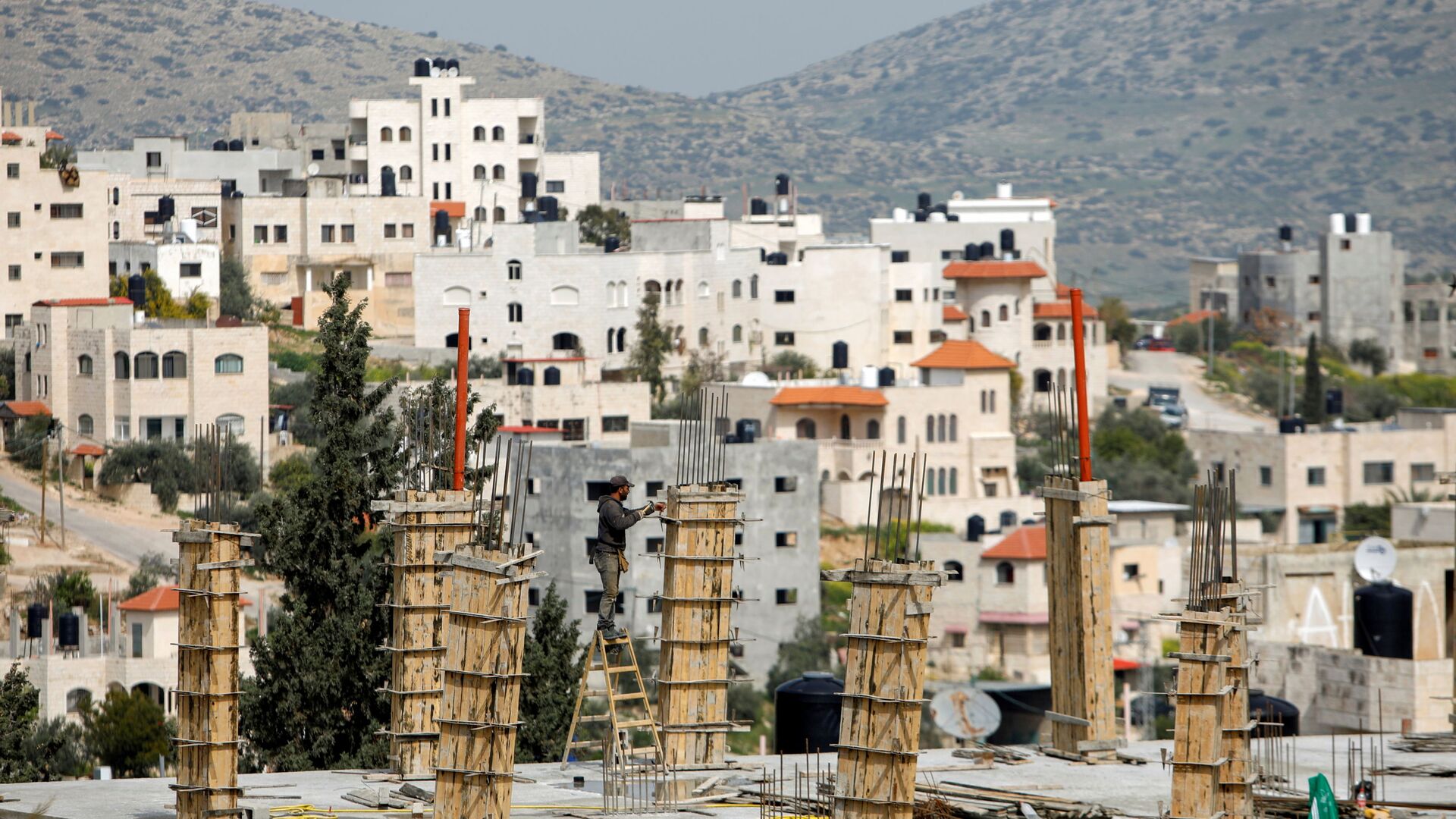For Israelis, the parliamentary race set to kick off on Tuesday is a fight for the country's democracy, for higher living standards, and for equality.
But for Palestinians, it will also be a battle over the future of their independent state.
Battle for Statehood
Khalil Shaheen, a Ramallah-based political analyst, says the leadership of the Palestinian Authority (PA) is eyeing the Israeli elections closely because their outcome will have a "direct influence over the Palestinian issue".
"Israel's right-wing circles do not believe in a two-state solution," he says.
The problem is that that camp is a dominant force in Israel. Out of 14 major parties that will be taking part in the polls, seven are considered to be hawkish, taking a hardline approach on the Palestinian issue. And they are also the ones that have the most chances to form a government.
According to recent media polls, Prime Minister Benjamin Netanyahu's Likud party will remain Israel's largest, getting 32 out of 120 seats in the parliament, the Knesset.
To garnish the 61 seats needed to form a government, Netanyahu is also expected to forge an alliance with his natural allies, which include Ultra-Orthodox and religious parties, something that spells trouble for Palestinians in the West Bank and Gaza.
Under such a government, if it does end up shaping, Israel is likely to expand its settlement activities in the West Bank, an apple of discord between Israel and the Palestinians.
It will also be easier for a coherent hawkish government to pass laws that would harm Palestinian rights or extend the Jewish state's sovereignty over parts of the West Bank.
"If Netanyahu is re-elected, we can say that the prospect for peace will be buried. Palestinian rights will be ignored, our dream of an independent state (based) on the borders of 1967 will perish."
Room for Optimism?
However, the expert believes there is still room for optimism, simply because Netanyahu might still lose the battle to remain prime minister.
Since the outbreak of the coronavirus pandemic in February 2020, Netanyahu's popularity has seen ups and downs. Last August, his ratings hit a low ebb. Back then, a poll revealed that 78 percent of respondents were dissatisfied with the way the government has handled the virus and the economic crisis it helped cause.
Now, with more than five out of Israel's nine million people fully vaccinated, Netanyahu has better chances to obtain enough seats to form a coalition, but voices that want to see him leave office still sound loud and clear.
Saturday saw one of the largest anti-Netanyahu protests so far, with an estimated 20,000 people attending. Many were venting anger at the PM for the way he mishandled the pandemic that has claimed the lives of more than 6,000 Israelis.
Others demanded that he relinquish power over his bribe, breach and corruption charges in a series of graft probes into accusations that he bought positive press and received gifts from a rich donor, allegations that the PM denies. Still others called for equality, better living conditions and rights for the Palestinian people.
This is the reason Shaheen believes Netanyahu's days are numbered, and this is also the reason, he says, Israel's liberal circles now have a chance to form their own government.
"The PA leadership prefers to see a change. They want to have a partner in Israel that they can work with. Only they [liberals] will be able to advance peace in the region and will be able to implement international law and resolutions."
That, however, will not be easy. Israel's current opposition is largely divided. The way it stands now, the only glue that keeps them together is their disdain for Netanyahu but their views differ significantly on many other issues including the rights of the Palestinians and the resolution to that conflict.
Only two out of six parties of Israel's opposition are considered left-wing, fighting for Palestinian rights and their future state. All the rest are caught up in the middle, between a hawkish approach to a lukewarm attitude on that subject.
That's why the only question that begs to be answered is whether that opposition, if it ends up winning, will live up to the expectations of the Palestinians. Israel, the Palestinians and the world will find out soon.




